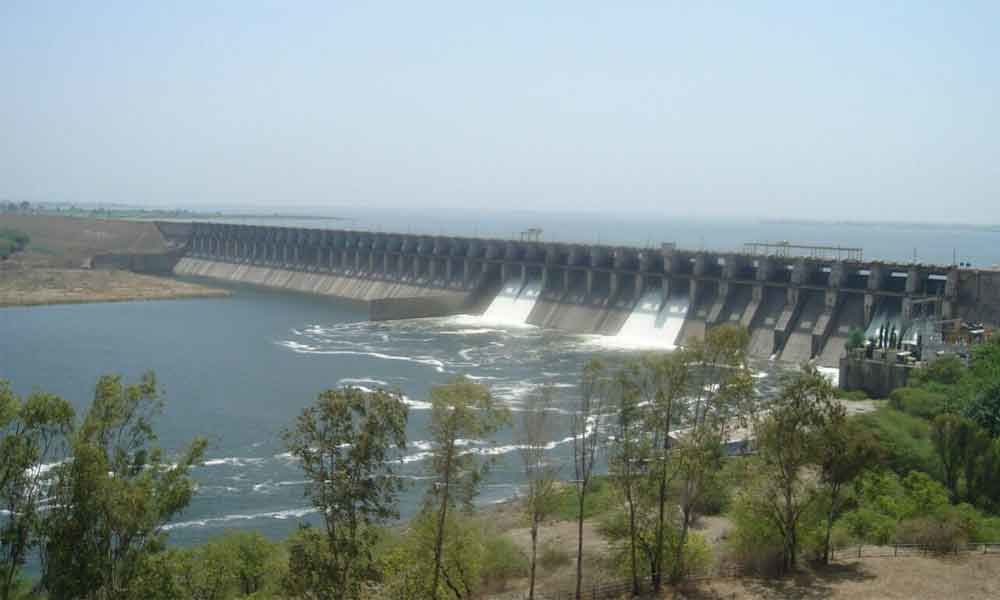If made into law, it will ensure greater cohesion among states and help in effective utilisation of water resources.
The Interstate River Water Disputes (Amendment) Bill 2019, which has been passed by the Lok Sabha, but is pending before the Rajya Sabha, will usher in a new era in the country. The Bill, which is expected to be passed in the winter session of Parliament, will not just put an end to decades-long litigation between various states, but also help judicious utilisation of river waters.
The need for early passage of this Bill came to the fore this week when Union Jal Shakti Minister Gajendra Singh Shekhawat presided over an apex council meeting from Delhi on the Krishna river waters on 6 and 7 October. Andhra Pradesh Chief Minister Y.S. Jagan Mohan Reddy and Telangana Chief Minister K. Chandrasekhar Rao (KCR) joined it through a video conference.
It is well known that both Andhra Pradesh and Telangana have been fighting on sharing of Krishna river water ever since the combined state was bifurcated six years ago. Not just these two, but Maharashtra and Karnataka, too, are parties as upper riparian states to the disputes on this river. Similarly, there are several disputes over utilisation of the Godavari river among these states.
Not only this, there are other long-standing river water disputes between Tamil Nadu and Karnataka on Cauvery river water and Tamil Nadu and Kerala on Periyar river water. As the southern peninsula is full of small rivulets that merge into major rivers and the vast spread of river basins and catchment areas, river water disputes have persisted for the last seven decades of Independence.
Article 262 of the Constitution gives rights to states on utilisation of river water within their jurisdictions, but it allows the Centre to decide the inter-state river disputes, if any. The Interstate River Water Disputes Act 1956 passed by Parliament immediately after the reorganisation of the states on linguistic grounds, gave powers to the Centre to adjudicate the disputes through various tribunals.
There are many river-water dispute tribunals in the country for each major river, between two, three or more states, depending on the nature of litigation. Alas, the finality of the verdicts of these tribunals has not been defined by the 1956 Act and left the responsibility of their notification to the Centre, which couldn’t take a firm stand in most cases, due to the delicate political nature of the disputes.
As a result, most of the cases landed at Supreme Court where inordinate delays are common by the time the disputes are settled. As Shekhawat pointed out in a Parliamentary debate last year, the tribunals have taken as many as 20 years to settle a dispute, while the SC takes some more years to close the issue, thus jeopardising the relations between the states.
Sometimes these disputes turn into law and order issues, causing bad blood between people. For example, whenever there is an order to release Cauvery river for the drinking water needs of people of Chennai, the city of Bengaluru erupts in protests, sometimes snapping all transport between the two states.
This 1956 Act was once amended in 2002, but the changes were not comprehensive to address the needs of the contemporary times. Dwindling rainfall, growing population, changing usage patterns and emerging ecological concerns have made the river water disputes into major challenges before the country.
Shekhawat must be appreciated for defusing the tensions between AP and Telangana this week by deftly suggesting an active role of his ministry at the Centre. Luckily, both the CMs have agreed to the Jal Shakti ministry’s decision to refer the matter to a special tribunal. Otherwise, we could have seen violent clashes of farmers of the two states the way they took place a few years ago.
The Amendment Bill, which might be made into an Act of 2020, will set up one interstate river water tribunal for the entire country with different benches for different rivers, depending on the disputes. These benches comprising retired justices, officials and experts would deliver time-bound verdicts—not more than two years and extendable to one more year.
So, any river water dispute between the states would be solved within a maximum of three years and the tribunal verdicts are legally enforceable and binding on the parties. There will be no need for the Centre to separately notify the verdicts, as per the provisions of the Bill, paving way for their automatic implementation.
Then, there won’t be instances of states openly defying rulings of the SC and creating political trouble for the Centre. This new Bill, if made into law, would ensure greater cohesion among the states and help in effective utilisation of water resources. As Shekhawat told the Lok Sabha in July 2019, this Bill will look after the river waters of the country for the next 30 years.

